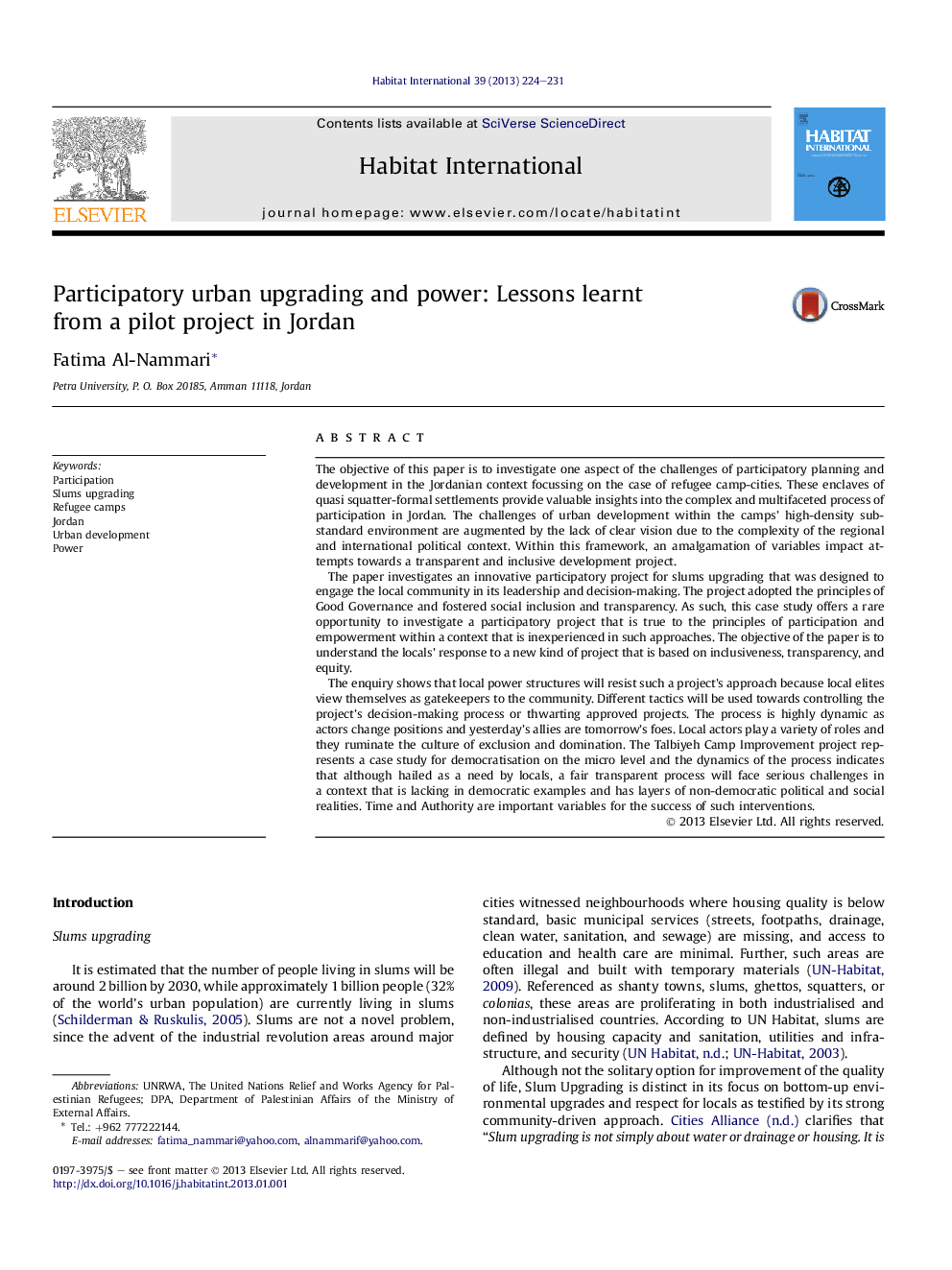| کد مقاله | کد نشریه | سال انتشار | مقاله انگلیسی | نسخه تمام متن |
|---|---|---|---|---|
| 1048241 | 1484503 | 2013 | 8 صفحه PDF | دانلود رایگان |

The objective of this paper is to investigate one aspect of the challenges of participatory planning and development in the Jordanian context focussing on the case of refugee camp-cities. These enclaves of quasi squatter-formal settlements provide valuable insights into the complex and multifaceted process of participation in Jordan. The challenges of urban development within the camps' high-density sub-standard environment are augmented by the lack of clear vision due to the complexity of the regional and international political context. Within this framework, an amalgamation of variables impact attempts towards a transparent and inclusive development project.The paper investigates an innovative participatory project for slums upgrading that was designed to engage the local community in its leadership and decision-making. The project adopted the principles of Good Governance and fostered social inclusion and transparency. As such, this case study offers a rare opportunity to investigate a participatory project that is true to the principles of participation and empowerment within a context that is inexperienced in such approaches. The objective of the paper is to understand the locals' response to a new kind of project that is based on inclusiveness, transparency, and equity.The enquiry shows that local power structures will resist such a project's approach because local elites view themselves as gatekeepers to the community. Different tactics will be used towards controlling the project's decision-making process or thwarting approved projects. The process is highly dynamic as actors change positions and yesterday's allies are tomorrow's foes. Local actors play a variety of roles and they ruminate the culture of exclusion and domination. The Talbiyeh Camp Improvement project represents a case study for democratisation on the micro level and the dynamics of the process indicates that although hailed as a need by locals, a fair transparent process will face serious challenges in a context that is lacking in democratic examples and has layers of non-democratic political and social realities. Time and Authority are important variables for the success of such interventions.
► Urban upgrading projects can be an arena for serious power conflicts.
► Perceptions among stakeholders can hamper grassroots participation.
► Time is an important factor in the impact and the dynamics of power struggles.
► An inclusive bottom-up approach will be challenged by the very people it empowers.
► Authority can support the participatory process to prevent its abuse.
Journal: Habitat International - Volume 39, July 2013, Pages 224–231